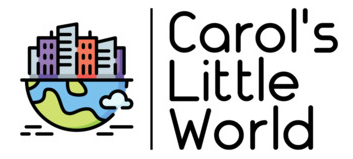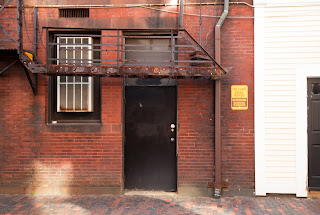There’s a line from “The Princess Bride” where Inigo Montoyo comments on Vizzini’s use of the word “inconceivable.” Montoyo says, “You keep using that word. I do not think it means what you think it means.” Buttercup references aside, there’s a trend nowadays for Getty Images to partner with a lot of the web sharing sites for images. On the surface, this sounds like a wonderful idea. It’s great for lots of photographers to be able to license and sell their work through the Getty Images engine. If you are unfamiliar with this, the Getty Images engine I’m talking about here, why, it’s easy to spot out in the wilds. Look at almost any newspaper, popular website, or for that matter, anyplace really where images are displayed in print (or on the web) and you will probably come across the phrase “Getty Images” in small type somewhere along the bottom, the edge of the image, or quite often appearing as a watermark. Getty Images is one of the largest stock photography agencies in the country, probably the world actually. It’s quite a big engine with deep pockets and a lot of resources, both in terms of being able to pay photographers and being able to secure rights to images for reproduction. Many popular newspapers use Getty Images to secure images and, over the course of time, many photographers have been very successful using Getty Images as a means of showcasing and selling their work. I’m not going to knock Getty Images, that’s not the point of my post, but I have noticed something about the more recent acquisitions.
In recent years, the microstock trend has resulted in some photographers getting paid pennies on the dollar for their images. For a time there, the entire stock photography market sort of dried up as well. Most photographers were no longer making money from stock images. When I started out exhibiting my work and shooting regularly as a photographer, back around 1992, a good photographer could make possibly between one and two thousand dollars a month if signed with a stock agency. In those days, this was really enough to live on without having to secure a day job. Of course, you had to be a good enough shooter and, perhaps more importantly, you had to shoot what the clients were requesting at the time. For example, I got signed to a stock agency at one point and they told me they wanted celebration/parade style images from Austin downtown, specifically Juneteenth celebration images. (An interesting note, these images are still in high demand but that’s a blog post for another day.) Since we’ve had several economic bubbles and the publishing market has fallen apart, it’s almost impossible to make that kind of money in stock photography nowadays. Oh, I’m sure somebody is doing it somewhere but, the average Joe or Jane with a camera and a weekend addiction? Yeah, that’s not going to happen. Along the way, you see, the microstock trend happened. This was where some agencies thought it might be a good idea to sell images very cheap. Instead of a photographer selling an image for, say, $400, they would now sell one for $5, with the idea being that lowering the price would drastically increase the number of sales. For a while this panned out. In fact, I know some photographers who made some decent money in the early days of microstock but, again here, the market got flooded and the money became too spread out for most people to earn a decent living from this type of work.
In the early days of Flickr, when the web sharing was really at its peak, Getty had partnered with Flickr to make some Flickr photographers Getty Image photographers. This too worked for a while. I know of some folks who signed with Getty Images from their Flickr accounts, and some who made a lot of money, in fact, became professional just from sales earned through Flickr/Getty, while others made some money but most did not see enough to launch or sustain a career. This arrangement was not without its controversy as well. At one point, Getty Images paid some Flickr photographers something like $12 for images (note the microstock pricing) and then re-sold the images to Microsoft at a grand profit. There was also a famous case of Getty Images getting sued and losing over copyright violation as some of their practices were overreach at best (again, this is a blog post for another time.)
Having said all of this, the real issue I see here is that, frankly, nowadays, what does it really mean to call oneself a “Getty Photographer?” It used to be a name of prestige. When I first listed with a stock agency, I had to send them a slide deck of 200 slides. They took more than six weeks to get back to me with a yes and, only then did they send me a tear sheet with some suggestions, such as the Juneteenth celebration I mentioned. The stock agency I listed with wasn’t even Getty Images, it was a smaller, regional agency. It was hard to get listed in those days and the difficulty was rewarded in terms of sales. Stock photography has always been a matter of providing what the client wants when the client wants it. If you can deliver, you get the sales and sales in stock used to really rack up over time. Then too, once you racked up a bunch of sales, the agencies, in turn, would feed you the plum assignments. To be a successful stock photographer really carried some clout as well as some dollar signs behind your name. I once had a noted photographer tell me he put his son through college on stock photography sales. Yeah, it was that kind of money if you could deliver the goods.
While the “Getty Image” moniker might live on in terms of prestige, I have to question if it’s really worth it. I mean, just being able to say, “My names Jane Smith and I’m a Getty Photographer” used to carry a lot of weight. Nowadays, I have to wonder if it’s really the same thing? Frankly, I don’t think so. When I was on Flickr anyway, I opted to avoid the Getty Image partnership, mostly because I have always considered myself more of a fine art photographer and not really a stock shooter. Yes, I had been signed to a stock agency in the past but my past also revealed to me the error of my ways. I realized selling stock is not all it’s cracked up to be, so I never really hotly pursued the Flickr/Getty Image relationship and, frankly speaking, I’m not sorry about that. I don’t feel like I missed any great opportunities, although, in hindsight, sure I might have been able to make a few coins had I gone that route.
Now though it seems my avoidance with Getty Image is about to catch up with me yet again. The popular web sharing site 500px is going to partner with Getty Images. Since they were founded by the folks who originally started Flickr, I’m not surprised by this turn of events. I had originally signed up for 500px because I liked their model. They didn’t pay microstock prices, instead came up with a fixed pricing structure that, at least to me, seemed fair for both the photographers and clients. Any images sold through the old 500px garnered the photographer a fair but not exorbitant payment. I could live with that. It was fair. Most images were at a fixed price too, so the stock “stars” were not treated to more money, giving everybody a fair shake at getting an image picked up by buyers. It was a fair system at least it seemed so to my untrained eyes. Now, however, it would appear the Getty Image wolf is knocking upon the 500px door. The folks at 500px have partnered with both a Chinese company and Getty Images in an attempt at selling more images. It remains to be seen if this will translate into more sales for the 500px photographers or if we will go the way of the microstock photographers. I am not hopeful but I do like the site and intend to stick with it, at least for now anyway.
Still though this means that, at some point, I might too become a “Getty Photographer.” This really has me in a bit of a tizzy, as I’ve carefully avoided that label for quite a while. I don’t consider myself a stock photographer and so being listed on one of the major stock player’s sites is not really what I anticipated I’d be. It’s not my wheelhouse, as it were, but I am left wondering now if I have any choice in the matter, as Getty Images seems to be gobbling up everything in sight. And, like the darlings who once hung out with Buttercup, I really question if being a “Getty Photographer” even means anything anymore, given that almost everybody, it would appear, is destined to become one sooner or later.
So you say you’re a Getty photographer? I do not think that means what you think it means. At least, I don’t think it really means anything anymore but, go ahead, keep using that word anyway. Somebody, somewhere might just be impressed by it.
Until next time…
PS This image taken in Portsmouth. How I love a good fire escape.

